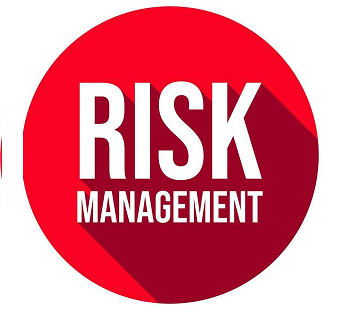Risk Management Company
Minimizing Risk, Maximizing Care
- 1200, Harley Street London
- London, United Kingdom


Medical Risk Management is a critical component of healthcare systems aimed at improving patient safety.
It involves identifying potential risks that could lead to harm or adverse outcomes in clinical settings.
This includes errors in diagnosis, treatment, medication, surgical procedures, and hospital-acquired infections.
Risk managers work to assess the likelihood and impact of these risks.
They develop policies and procedures to prevent or mitigate those risks.
Medical risk management also ensures compliance with healthcare laws, regulations, and accreditation standards.
It plays a key role in minimizing malpractice claims and legal liabilities.
Training healthcare staff in safety protocols and documentation is a major part of this process.
Regular audits, incident reporting, and root cause analysis are used to monitor and improve safety.
Ultimately, it supports the delivery of high-quality, patient-centered care.
Powered by Froala Editor
Medical Risk Management Services
1. Risk Assessment and Analysis
Systematic evaluation of clinical and operational processes to identify potential hazards and vulnerabilities in patient care.
2. Patient Safety Audits
Regular inspections of healthcare practices to ensure compliance with safety protocols and identify improvement areas.
3. Incident Reporting Systems
Implementation of platforms for healthcare workers to report medical errors or near-misses confidentially.
4. Root Cause Analysis (RCA)
A structured approach to investigate incidents and determine underlying causes to prevent recurrence.
5. Clinical Risk Mapping
Visual representation and analysis of risk-prone clinical areas, helping prioritize safety interventions.
6. Compliance Monitoring
Ensuring adherence to legal, ethical, and accreditation standards within healthcare facilities.
7. Infection Control Management
Development and oversight of policies to prevent hospital-acquired infections and ensure hygiene standards.
8. Medication Safety Programs
Monitoring and minimizing errors in prescribing, dispensing, and administering medications.
9. Medical Documentation Review
Auditing patient records to ensure accuracy, completeness, and legal defensibility.
10. Credentialing and Privileging Oversight
Verification of healthcare professionals’ qualifications, licenses, and scope of practice to ensure patient safety.
11. Consent Process Evaluation
Ensuring patients are fully informed and legally protected before undergoing procedures or treatments.
12. Claims Management
Handling malpractice claims and liaising with insurers to minimize financial and reputational damage.
13. Staff Risk Training Programs
Educating healthcare workers on risk management, safety protocols, and error prevention techniques.
14. Emergency Preparedness Planning
Developing action plans for natural disasters, pandemics, or system failures to ensure patient safety and continuity of care.
15. Cybersecurity Risk Management
Protecting patient data and medical records from digital threats through technical and procedural safeguards.
16. Equipment Safety Monitoring
Routine checks and maintenance of medical devices and equipment to prevent malfunction-related risks.
17. Clinical Governance Consultation
Advising on the integration of risk management into clinical leadership and quality improvement strategies.
18. Legal and Regulatory Advisory
Providing expert guidance on compliance with health laws, medical liability, and policy updates.
19. Patient Complaint Resolution
Managing and resolving patient grievances effectively to reduce the risk of litigation or reputational harm.
20. Data Analytics for Risk Prediction
Using AI or statistical tools to forecast risk trends and proactively manage safety.
21. Policy and Procedure Development
Drafting and updating risk-related healthcare policies aligned with best practices and regulations.
22. Workplace Safety Programs
Implementing procedures to reduce occupational hazards for healthcare workers.
23. Insurance Liaison Services
Coordinating with medical liability insurers to ensure proper coverage and claim processing.
24. Telemedicine Risk Review
Evaluating potential legal and clinical risks in remote care delivery and digital health platforms.
25. Surgical Risk Reduction Strategies
Implementing checklists, time-outs, and team briefings to avoid surgical complications or errors.
26. Blood and Transfusion Safety
Ensuring proper protocols for blood handling, testing, and transfusions to prevent contamination or mismatch.
27. Pediatric and Geriatric Risk Controls
Tailoring risk management for vulnerable populations such as children and elderly patients.
28. Financial Risk Assessment in Healthcare
Identifying potential financial liabilities or inefficiencies related to clinical and operational risks.
29. Confidential Risk Consultations
One-on-one expert consultations for healthcare professionals dealing with sensitive or high-risk scenarios.
30. Continuous Quality Improvement (CQI)
Ongoing initiatives to enhance patient care, reduce risk, and drive institutional excellence through feedback and review cycles.
Powered by Froala Editor
Our highly Qualified Team Of Professionals
1. Julia Martin – Patient Safety & Risk Management Specialist
Role: Oversees patient safety programs, incident reporting systems, and root cause analysis.
Certifications:
2. Dr. Steven Kim – Clinical Governance Advisor
Role: Guides clinical governance, credentialing, privileging, and clinical risk mapping.
Certifications:
3. Rachel Ahmed – Infection Control Officer
Role: Manages infection prevention protocols, hygiene audits, and outbreak control strategies.
Certifications:
4. Marcus Lee – Legal & Compliance Consultant
Role: Handles regulatory compliance, consent process evaluation, and claims risk management.
Certifications:
5. Laura Green – Clinical Documentation Auditor
Role: Audits medical records for accuracy, completeness, and defensibility in legal claims.
Certifications:
6. Dr. Omar Saleh – Medication Safety & Pharmacovigilance Lead
Role: Oversees medication error monitoring, policy creation, and safe prescribing protocols.
Certifications:
7. Hannah Cruz – Emergency & Disaster Preparedness Coordinator
Role: Develops emergency response plans, coordinates drills, and ensures readiness.
Certifications:
8. Nathan Reed – Cybersecurity & Data Risk Manager
Role: Safeguards patient data, ensures digital compliance, and handles cyber risk mitigation.
Certifications:
9. Sofia Delgado – Quality Improvement & Analytics Specialist
Role: Leads data-driven risk prediction, CQI programs, and performance metrics.
Certifications:
10. Benjamin Ross – Occupational Health & Safety Advisor
Role: Ensures workplace safety, staff training, and compliance with OSHA standards.
Certifications:
Powered by Froala Editor